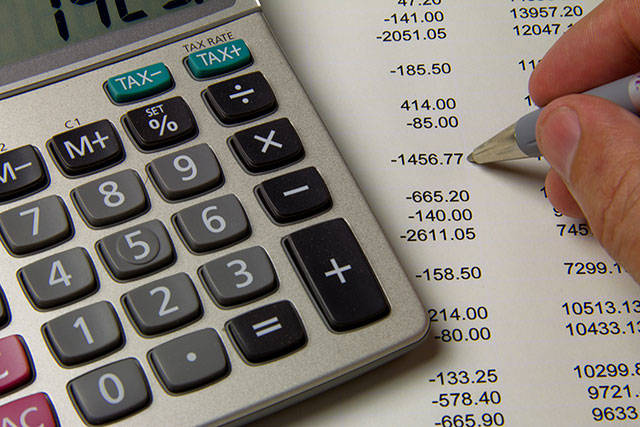The complex process of crafting Buckley’s municipal spending plan has been a bit more pleasant this year. The reason is simple: money isn’t quite as tight as it used to be.
As the seven members of the Buckley City Council prepare to adopt the 2019 budget on Dec. 11, they’re hearing a positive message from City Hall. In fact, the opening sentence of Mayor Pat Johnson’s formal budget message relates how this year’s budget process was “much easier than in the past several years.”
The 2019 budget, she wrote, “actually has some additions instead of cuts.”
A quick driving tour of Buckley shows why the small town’s finances have taken a bump for the better. New homes are springing up on both the north and south sides of town and that means increased property tax collections. And, while Buckley might not have a booming retail scene, sales tax revenues are flowing into city coffers at record-high levels.
Johnson’s budget message keeps a positive tone, but is tempered with the administration’s desire to squirrel away dollars for later use. “It is always easy to spend money, but it takes discipline to plan and save and pay with cash,” she wrote.
In keeping with that thinking, Buckley has set aside $5 million from the 2014 sale of the natural gas utility, placing it in an interest-bearing account. As equipment ages and needs to be replaced, Johnson wrote, the city will be able to purchase with cash and avoid interest charges. The interest stemming from the invested $5 million, she added, will pay for a full-time police officer in 2019.
PROPERTY TAXES AT THE FOREFRONT
When it comes to supporting city functions, most residents look at their property tax assessments. That’s tricky business, as rates can drop while the tax bill spikes.
The dollar figure charged by the city has a limit: years ago, cities could increase their overall property tax collections by 6 percent annually; now, by virtue of a voter mandate, total collections can grow by only 1 percent (plus an add-on for new construction). Everything is based on the total dollar value of the city, a figure determined by Pierce County.
When the smoke clears, Buckley is left with an anticipated property tax rate of nearly $1.69 for every $1,000 of assessed value, a notable decrease from the 2018 rate of about $1.81. Property valued at $350,000 will pay city property taxes of approximately $591 during the coming year, as opposed to about $633 this year.
But the math isn’t that simple. Property values have been steadily increasing since the depths of the latest recession and when values rise, so does the total tax bill.
WHERE DOES THE TAX MONEY GO?
When considering a total property tax bill, residents see a variety of destinations for their dollars. The property tax assessed by the city equals about 21 percent of the total bill.
The bulk of the tax collection goes toward public education, with local schools receiving about 41 percent of the total and the state school system getting another 22 percent. The city of Buckley is No. 3 on the list, followed by Pierce County and the library system. Buckley property owners also pay property taxes to support port district operations, flood control efforts and battles against noxious weeds.
BUDGET ALSO ADDRESSES UTILITY RATES
Buckley’s three utilities are “enterprise funds,” meaning they must be self-sufficient – revenues have to match expenses. The three are sewer, stormwater and a water supply system that is shared with Rainier School.
For the coming year, the proposed city budget calls for a 6.5 percent rate increase for water, assessed to users with all meter sizes. Stormwater will likely carry a 5 percent rate hike, but the fee for water looks to stay at the 2018 level. Garbage collection is addressed through a contract with DM Disposal and the city anticipates hiking rates by perhaps 1.5 percent to offset the fees charged to the trash hauler.



